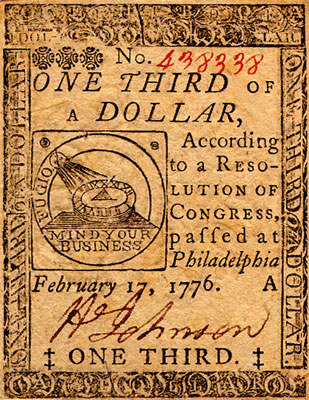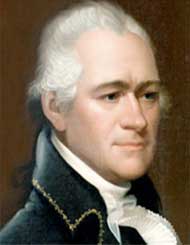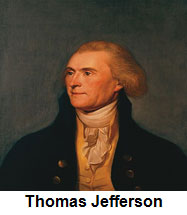As the new nation began to take shape, American lawmakers paid careful attention to the economy. Taxation was an important issue for the new nation. Under the Articles of Confederation, there was no congressional power to levy taxes due to the colonists' fear of a strong central government. This left the country unable to raise necessary funds. Taxation continued to be an issue as the country came under the rule of the U.S. Constitution.
Read the following excerpt from Article 1, Section 8, of the U.S. Constitution:
The Congress shall have Power To lay and collect Taxes, Duties, Imposts and Excises, to pay the Debts and provide for the common Defence and general Welfare of the United States; but all Duties, Imposts and Excises shall be uniform throughout the United States
In your notes, answer the questions below based on the excerpt above:
- What was the purpose of Congress levying the taxes?
Interactive popup. Assistance may be required.
Check Your Answer
- What is the advantage of levying the taxes by Congress?
Interactive popup. Assistance may be required.
Check Your Answer
- What is the disadvantage of levying taxes by Congress?
Interactive popup. Assistance may be required.
Check Your Answer
The United States Constitution established the government of the new nation. The issue of the weak economy became a major concern for the leaders of the new nation. The economy of the United States was transitioning from an economy based on farming to a more industrialized economy. Along with the changes in the types of economy, the country also faced a war debt of $64.12 million.
People were moving beyond the 13 colonies and settling on new lands. After the American Revolution, land grants were offered for soldiers who had served in the Continental Army. This, along with the government sales of land, encouraged people to move farther west, thus expanding the American economy and the demand for goods into new areas.

Source: Continental currency-One-third dollar, Lockal, Wikimedia
→ Did you know? During the Revolution, the colonies issued their own money. American soldiers had to be paid in continental dollars, like the one pictured to the left. The American government did not have enough silver or gold to back the dollars, so they soon had no value.When people referred to items with no value during this time period, they often said they were "not worth a Continental."
PresidentGeorge Washington appointedAlexander Hamilton as the Secretary of the Treasury in 1789. Hamilton was to oversee the economy and help the new nation recover from the massive war debt it had incurred. Not only was Hamilton faced with this debt, but he also had to establish standards and procedures and organize the finances of the country. Hamilton devised a plan to restore the economy; his plan was called "First Report on Public Credit." In it, Hamilton argued that the federal government should assume (take responsibility for) all of the state debts in an effort to stimulate the economy and create a stronger country. His plan was met with opposition and one of his main opponents wasInteractive popup. Assistance may be required.
Thomas Jefferson.
Ideas about the growth of the economy of the United States
 Alexander Hamilton
Alexander Hamilton |
|
- Hamilton wanted to encourage business and industries (shipping, manufacturing, and banking) to grow in the United States.
- Hamilton favored a strong central government.
- Hamilton argued that the implied powers of the Constitution could be used to fund the national debt and requested a charter for a national debt.
|
- Jefferson wanted the country to remain a country of farmers and landowners.
- Jefferson was not in favor of a strong central government.
- Jefferson argued that the bank was unconstitutional and only benefited the wealthy.
|
In your notes, answer the following question.
Whose policy do you believe would be better for the United States economy at the beginning of the new nation, Hamilton's or Jefferson's? Explain your decision.
Here is how Hamilton's plan worked:
- He was successful in taking over the state debts and getting them paid along with the national debt.
- He sold securities to the wealthy citizens who now had a financial interest in the new government.
- He funded the debt with tariffs on imported goods and a special tax on whiskey.
One of Hamilton's most important achievements was the charter of the First Bank of the United States. He received the power from Congress to create a national bank, a bank owned by the government. The charter lasted 20 years from 1791 to 1811. In order to stabilize the economy under the newly enacted Constitution, Hamilton thought a central bank was necessary.

Source: First Bank of United States00, Davidt8, Wikimedia
Directions: The statements below reflect causes and effects of the free enterprise system in the new nation. Match each cause to the appropriate effect.

Cause & Effect: Free Enterprise in the New Nation






